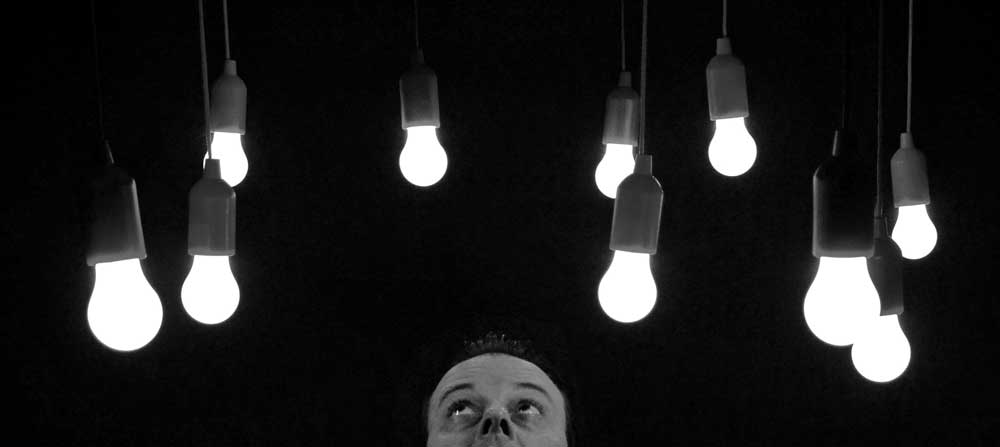
By Maria LaMonaca Wisdom
A couple of months ago, I caught up with a few first-year humanities doctoral students over lunch. What was on their minds? Well, if our conversation had a title, it would have been “Staying on Top of All the Things.”
There is simply too much of everything. Managing the reading and papers alone can be all-consuming. But more of our conversation focused on a shared felt need to go to things: talks, symposia, colloquia, reading groups, workshops, conferences, performances. Very often, doctoral students perceive an expectation or obligation to attend things, especially events connected with their Ph.D. programs or program faculty. But perhaps more taxing are the many, many other advertised events, on and off campus, that seem to fall within a gray area. Is this worth my time? Is this going to help me advance my research or professional agenda? What is my agenda anyway? Never mind the labor of attending things; you can easily get decision fatigue before even stepping out of the house.
What can I say, as an advisor, to students (and they are not just first-years) who feel beyond overwhelmed by All The Things? There are definitely limits to advice-giving, including the fact that many students are also overwhelmed by All The Advice coming at them from every direction in grad school. And when I do give advice, there’s sometimes a spaghetti-against-the fridge moment, where I’m not sure if what I’m offering will be either memorable or helpful. But sometimes students tell me about something I’ve said that had an impact, and since this has happened twice recently, about the same piece of advice, I humbly offer this noodle:
Follow your energy.
I’ve been wondering why those two students (a first-year and a fourth-year) found the advice so helpful (yes, I should have asked). My sense, however, is that paying attention to your energy brings about two shifts of focus: 1) from external (what everyone else wants you do to do) to internal (what you want to do); and 2) from your overworked brain to another place of knowing in your body.
An Energy Snowball
Energy has become something of a buzzword in articles and books on time management. For example, Tony Schwartz argues in The Power of Full Engagement that energy management is the key to getting things done, and he lays out a detailed prescription for maximizing one’s energy rather than time.
Books such as Schwartz’s are worth a look, but may not be for everyone. My initial suggestion wasn’t so much about managing energy, but simply becoming more aware of its presence (or absence) in your life, and recognizing it as a source of knowledge, perhaps as a cousin of intuition (something else you may not be paying enough attention to).
So what does it look like, to follow your energy?
For starters, if something brings you energy, do more of it. If it continues to bring you energy, keep doing it. At this point, you may have built enough momentum (let’s call it an Energy Snowball), so that you start rearranging other bits of your life to do the thing that energizes you. You almost can’t not do it.
Serious runners are a good example of this. As a weekend runner, I’ve always been in awe of people who need to run every day, like those folks I see at academic conferences (and there are always those folks) who slip out of the hotel at 6 a.m. with a crazed look in their eyes, utterly determined to navigate a five-mile loop in a new and unfamiliar city.
At this point, you may be thinking, “Gosh, this sounds awfully distracting. I have a Ph.D. to finish and a dissertation to write.” Yes, of course. But even within the everyday activities that are part of your doctoral work, I encourage you to start paying more attention to things that bring you more (and less) energy—the events you do choose to attend, the longer-term projects you may embark on, and especially the people you associate with.
Avoid the “Mobius Strip”
Why is this important? For starters, decision fatigue is real, in part because we place too many demands on the critical, rational side of our brains. Of course, getting trapped in your own head is an occupational hazard of academic life. Yet there are so many situations in life that you can’t reason your way through in the same manner in which you’d plan a seminar paper or book chapter. A complex, messy topic such as figuring out your future is a great example of this. I recall my best friend in grad school, in the year we both first stepped onto the academic job market, describing her state of mind as a “Mobius strip.” That’s basically a “non-orientable” infinite loop; in this case, my friend felt completely exhausted from endless, unproductive rumination as we waited for more information from the hiring committees that might determine our fate.
You might not have everything figured out yet, but doing the things that bring you energy in the short term not only grounds you in the present moment, but it might well lead to a fulfilling and coherent path in the long term. And not only is your energy a critical source of self-knowledge, but it may help others see and understand your talents as well.
I still remember sitting down, a few years ago, for a high-stakes interview for a job that I was very excited about. My head was full of carefully prepared talking points, but before I could even open my mouth, my interviewer grabbed my arm and exclaimed, “I can feel your energy!” It wasn’t the most conventional interviewing tactic, but I got the job.
Intellect and ideas aren’t everything. What are you excited about? What needs to happen so that you can do more of it? Feel free to drop me a line if you’d like to chat about it.
